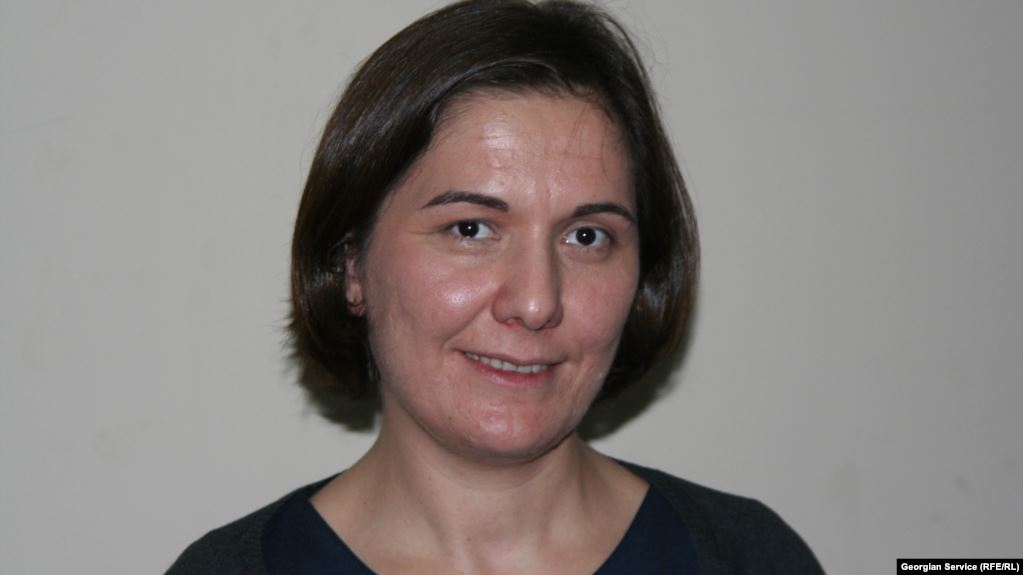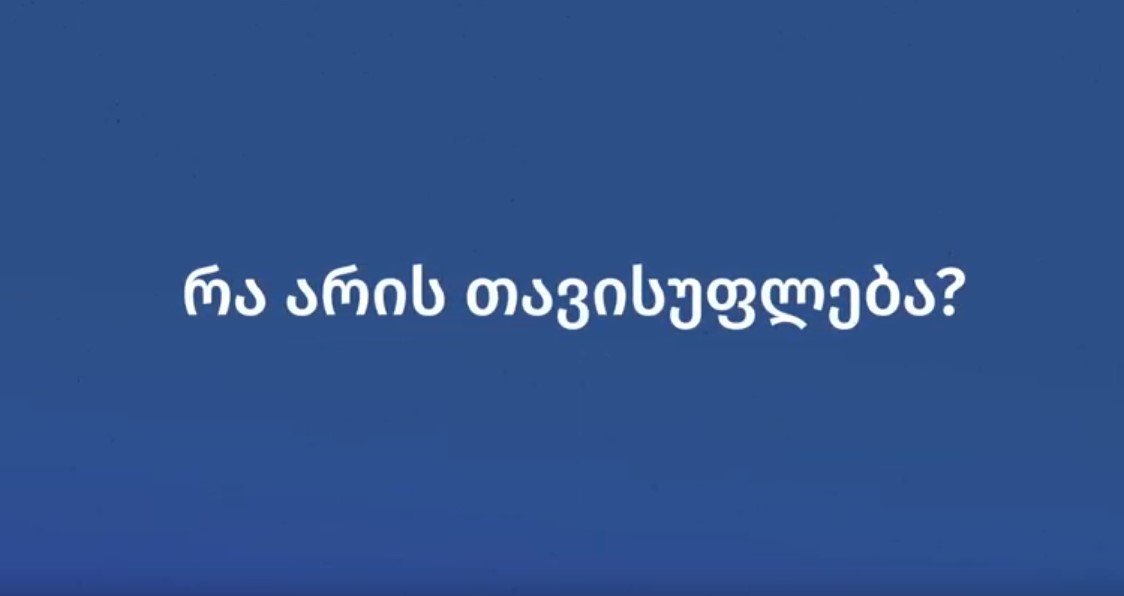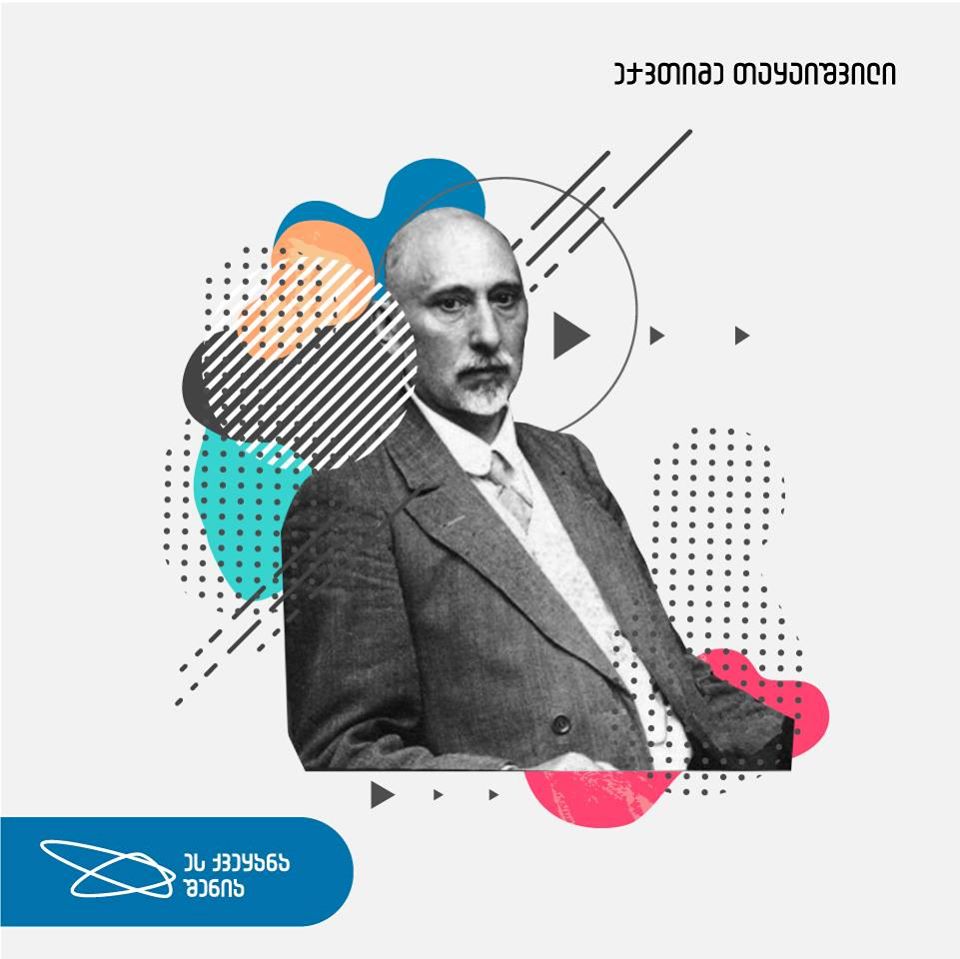Public Relations – the chief weakness and advantage of the sector
Popular





Web portal of civil society organizations has interviewed lawyer Tamar Gurchiani on the current situation in the civil sector.
Interviewed by Lali Shalvashvili
Dear Tamar, you have worked as in the CSO sector, as well as in international and donor organizations, i.e. you could see the advantages and disadvantages of the sector as from outside, as well as from within...
Tamar Gurchiani – I believe despite huge experience, the CSO sector is weak in Georgia. In "weakness” I mean neither organizational development, nor influence over the authorities. What I mean is the influence on the public sector. Relations with and influence on the public is, on one hand, the chief weakness of the sector, while on the other hand, having relations with them is the key advantage. As for the authorities, the sector may exert influence more or less.
You have mentioned the sector’s relative influence on the authorities, which years did you mean? The sector’s activities may be conditionally divided in three stages...
Tamar Gurchiani– I would rather assess the status quo, history has never been the subject of my studies. We can easily assess the influence over the authorities by the authorities that we are talking about. It depends more on the authorities than the CSO sector – if the authorities are open, CSOs have more impact and vice versa, when the authorities are strong and bureaucratic, NGOs have less impact. Unfortunately, everything was dependent on the authorities and not the sector.
I’d go back to the first question – it is the disadvantage of CSOs that they broke the link with public.
Did they really have this link?
Tamar Gurchian i– This is the legitimate question and probably a red line of our talk. They did not have a link really. As I have already noted, this is the chief disadvantage of the CSO sector. I would refer to the case of "This Affects You” campaign. CSOs have demonstrated their power when the organizers of the campaign had appealed to people, telling them this was affecting them as well. The process was accompanied by the tools such as social media and traditional media, which have opened their doors and assisted in driving the campaign. Yet, the CSO sector has shown its real force when it discovered people as a body behind its back. It is a paradox indeed that the relations with the people are the weakness and the strength at the same time, and this very factor is linked to the sector’s legitimacy, awareness and other issues.
You have mentioned relations with the public as part of the campaign, why do you think it was not and is not possible to always have such relations?
Tamar Gurchiani – Before discussing this issue I would like to note that our advantage is the normal liberal not-for-profit legislation and not the legal environment like in Russia for instance. Diversity is also an advantage, which should mean that various social groups must be represented in the CSO sector. Founding CSOs is easy and the number of registered organizations attests to this, however, it is astonishing that in reality the diverse groups are not represented – formally yes, but not factually. Source of the sector's funding may be the reason for this, it's not coming from the people, there is no their contribution there. It comes from international donors, CSO sector became dependent on the assistance, and accordingly whoever funds us, those set up our agenda and we feel responsible towards them. Whereas, where there is no feeling of responsibility, even elementary links vanish.
Today the only link between CSOs and the people is established when the CSO sector offers concrete services. For instance, GYLA provides free of charge legal services. In such cases people are not represented or participating in the project, they only receive the service.
Briefly saying, you mean the involvement of certain part of the population in the project activities only?
Tamar Gurchiani – I mean the situation when the only link that I have mentioned above implies not representation of these people, but when the people are represented as beneficiaries and they are not project participants, when they should be. Citizen participation is what makes the CSO sector different from the bureaucracy, or business. Its interest does not lie in profits or management, but the activities originating from the specific society and based on the public needs.
What is the reason for this? Why is the sector unable to find alternative finances to the donors' donations? Is the public attitude decisive as well? We often hear that the CSO sector is a vicious circle, etc.
Tamar Gurchiani – Our society is not xenophobic as to dub any kind of assistance as grant-eating and demand from the authorities its prohibition. Yet, international donation is one of the factors facilitating this alienation. Of course we should not blame this on international organizations but we should be grateful to them for their support. This is the problem of CSOs and their wrongdoing – meaning that they manage to alienate from people. Alienation is a serious risk and danger, which we face. This alienation may absorb values that we guard and that are secured by international organizations. That is why all of us must be careful. Because the assistance comes from abroad, the population may think that the initiatives backed by them are forced and illegitimate at the national level. In order for everything to gain legitimacy at national level, CSOs must try their best to have the feeling of ownership emerged among these people and to explain to them that nothing is forced.
You think there is such danger and attitude among the population?
Tamar Gurchiani – Yes, and these are confirmed by the studies. CSOs are responsible for showing to the public a small division between the local and the global, so that people no longer are skeptic towards international assistance. There is skepticism among the population. Studies carried out as part of the Policy, Advocacy and Civil Society Development in Georgia Project have demonstrated also that awareness is low. We'll be able to talk about the sector's influence after we agree that after all the public knows what the CSO sector is. If the public think that the Labor Party is the CSO sector - and the mentioned study has shown this - then we should not aspire to in-depth discussions. We should view everything in an entire context – latest studies have demonstrated that 80 percent of the Georgian population has a positive attitude towards the European Union. Everything shows that our society is quite open, there is nothing alarming, but this does not mean that tomorrow will be the same. There is a freedom of speech in Georgia and quite many political groups and persons with doubtful education and reputation manage well to manipulate the population and deepen xenophobic feelings. That is why all of us together should be careful, we should not substitute international assistance entirely, but somehow should link to their assistance the population's financial support as well.
CSOs must surely start developing the fund-raising strategy, which will be based on donations of concrete individuals. It may be that 2 or 5 GEL donated by each person may not affect the budgets of CSOs that much, but if one organization collects 1,000 persons and receives donations from them for the specific activity – they will thus gain legitimacy and confidence. If the CSO sector does not switch to this mode, the mentality of dependence on the assistance will deepen further, and, let's say so, will become inert and inactive, hence achieving the less effect. After all, international assistance is not an inexhaustible resource also, and in the course of time it will terminate just like in many other countries.
Do you think the CSO sector is ready to offer to international and donor organizations the issues that are of concern and interest to public... I am asking this because sometimes they say organizations are unable to have an equal dialogue with international organizations and they have to fit projects to the grant proposals...
Tamar Gurchiani – Donors announce priorities based on the study of needs and they are responsible for the relevance of these priorities. CSOs are not proactive to inquire into real needs and in number of cases they prefer fitting to the grant proposals.
Yet, it's a different story whether the population is aware of its needs? Or does the CSO sector know what the population needs? This is where we need the sector's pro-activeness and the skill of prioritization. Unfortunately we live in the era where often media determines our needs, and that's why it is possible that the country's President can spend money in Taiwan or elsewhere, while according to the data of UNICEF, every fourth child lives in poverty. For instance, allocation and alienation of the state funds is the state prerogative, we have the right to participate, but do the people participate in this affair, or are their interests taken into account? The population itself is in uncertainty.
What do you mean by uncertainty?
Tamar Gurchiani – For example, everyone knew how the funds from the President's Reserve Fund were spent. In reality people did not protest. What did the CSOs do apart from providing the information, did they convince the public that this was wrong? Because the interaction between organizations and public is not profound, and many individuals come from the era when person was not asked of anything, processing of the priorities and needs is the responsibility of CSOs, and this is the real work to be done.
The issue that you raised, this is a broader problem extending beyond let's say the "limits" of one sector only...
Tamar Gurchiani – Of course, CSO sector is a part of the population as well. It has the problem of priorities, while the public has the problem of identification. What I say may not be an absolute truth, some may believe funding the defense sector is a bigger priority, but I believe that education of children, their social protection and so on is more important. Someone should think this over, no? We are at the stage of basic needs.
You have mentioned the CSO sector that has a small interaction with the public. Why people themselves do not use this opportunity and set up organizations, through which they would bring their needs and opinions to the authorities at least. The sector, let's say so, is a certain way, means for at least this, why does not all of this happen?
Tamar Gurchiani – People view CSOs as service-providers only and expect it to do something concrete for them. This is a wrong perception from the beginning. There is a hypothesis in management that a leader produces leaders. A good manager creates a leader from the subordinate and not a submissive person. The same applies to CSOs - CSO is a good one when it creates other strong players in the sector, and when it teaches how to solve problems. Of course, people should also change this position, become more active and confident.
In one of the interviews you mentioned that no authorities needs a strong society and a civil sector. What did you mean?
Tamar Gurchiani – We have often heard the rhetoric of various officials about supporting the civil society development, funding it, etc. Non-interference in the affairs of CSOs and non-hindrance is the only support that the state can provide. By non-hindrance I mean the legislation, and as for the development of CSOs, this is not the duty of the state. In reality and in view of the interests of the authorities, they are not all right with active citizens, whereas to the contrary, the state needs strong individuals. No authorities are all right when the citizens are well aware of their rights, demand satisfaction of their interests, and permanently control them.
Is this the same in all states, or in the developing countries only, where the democracy is rather fragile?
Tamar Gurchiani – How good the authorities are, they will not willingly allow the alternative control mechanisms. Good authorities will not introduce oppressive mechanisms like Russia, but they will not be satisfied either with being under public pressure on a daily basis. I will go back to the previous question and what I meant by non-hindrance - there are numerous issues requiring urgent solution, including the charity-related regulations, which require improvement, and if benefits are introduced, this would create and develop the welfare culture as well. Another issue for example - CSOs have the right to pursue supplementary entrepreneurial activities, but although this a supplementary activity and they do not receive profits, they are still taxed by the common regime. This has to be revised also.
Many routine tax issues are to be solved, which we do not pay attention to, but I think we should start working on them. In these very issues I expect the state to play its role, which I already expressed as non-hindrance.
Political reality has changed after the elections, and probably international organizations will also change their priorities, what do you think these changes will be about?
Tamar Gurchiani – I do not have any information directly, but it is logical if it happens so. For instance, we have a more or less proper election infrastructure, and at this time in Pakistan, where in the recent elections 40 political subjects were killed and violence is a decisive factor in elections, there are larger problems and obviously they require much more assistance. International organizations identify the priorities by these very needs – they go where their assistance is needed the most. If election monitoring goes smoothly in our country, international aid will go to other states, which require more assistance in this respect. Nevertheless, I do not think international organizations will leave the country for all, but funding will be reduced definitely. We should cope with this reduced funding by some mechanism of fund-raising. Organizations will have to address the population and explain to them the importance of funding the CSOs, explain that the sector will work actively so that the Parliament adopts much better laws and decisions, etc.
Business is another resource for funding, why do you think partnership between the business and CSOs has failed?
Tamar Gurchiani – To say there are no relations would be wrong, business is involved in charity and acknowledges its social responsibility. There are several issues at stake here – is the business free? Or the rules that are established for business, are they public-oriented? I am not saying these rules entirely ignore public interests, but business has its own development stages and the question here is whether the business is at the stage implying high standard of social responsibility. Secondly, business cannot make free decisions unless it is liberated from the state's pressure.
Do you believe the business is under pressure?
Tamar Gurchiani – Based on what I see, I have an impression that business is seeking the new protector. I know this is a strict assessment.
Let's discuss partnership between the authorities and CSOs. At the outset, both the previous and new authorities have invited the sector's representatives to certain councils, and during the previous authorities some organizations were affiliated with the authorities. Is there such a danger today?
Tamar Gurchiani – To my surprise, many CSOs are not sensitive to this issue. If you participate in some decision-making, it is natural that you can no longer be an impartial observer of that matter. Yet, our CSOs manage to observe the balance well – on one hand, they receive the information and are involved in the work, and on the other hand, they do not receive funding for participation. That is why they maintain impartiality.
What are the three values that the CSO sector should be built on...
Tamar Gurchiani – Rule of law, fairness, good faith – observance of ethical standards.









